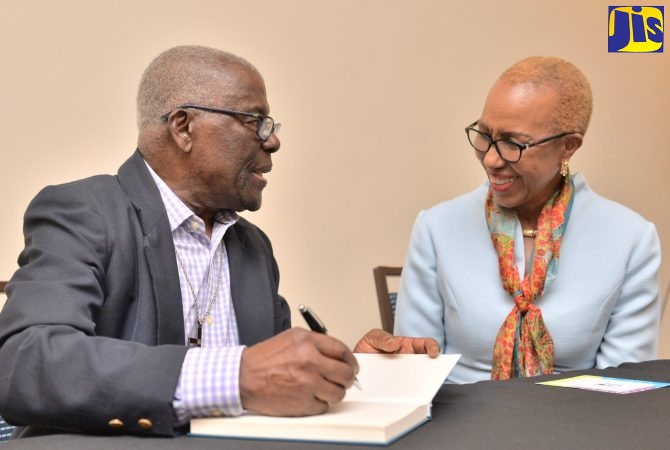A book that chronicles the development of the Bureau of Standards Jamaica (BSJ) from its formative years into what has become one of the Caribbean’s foremost authorities on standardisation was launched on Thursday (September 29).
Entitled ‘The Development of the Jamaica Bureau of Standards’, the book is authored by Revd. Dr. Artnel Henry, who was the BSJ’s Executive Director for 27 years, from 1973 to 2000.
Minister of Education and Youth, Hon. Fayval Williams, in her remarks at the launch held at the Courtyard by Marriott, Kingston, hailed the tome as a documentation of an important aspect of Jamaica’s history.
“I am delighted that you wrote this book because it is going to be a great reference for our students now and those to come in the future,” she said.
“Thank you, Dr. Henry, for sharing your story, for sharing your perspective, your take on nation-building. You have expanded our knowledge of the BSJ. You made us experience a little bit of the history,” Mrs. Williams added.
Dr. Henry, in his remarks, recalled some of the notable achievements of the BSJ during his tenure of almost 30 years.
“We established the CARICOM Standards Council, which afterwards, became the CARICOM Regional Organisation for Standards and Quality (CROSQ) and if you go through the Caribbean, you will find seven standards organisations because of the work of the BSJ,” he noted.
Under his leadership, the entity developed a robust structure with various divisions and 19 laboratories to support its vigorous testing regime.
As the leading advocate for standardisation in the English-speaking Caribbean at the time, Dr. Henry was integral in the BSJ’s membership, on behalf of Jamaica, in the International Organization for Standardization (ISO).
He was also instrumental in launching the National Certification Mark Programme in 1984, which awards certification to products and processes deemed to be consistently produced to reliable standards.
The BSJ is a statutory body established by the Standards Act of 1969 to promote and encourage standardisation in relation to commodities, processes and practices.
Its mandate includes the provision of services in relation to conformity assessment (certification, testing and calibration) and metrology.
The entity facilitates the development of standards and other requirements to which particular commodities, services, practices and processes must comply; monitors for compliance; conducts tests and calibrating instruments; certifies products and management systems; and provides industrial training and research and education in standardisation.


